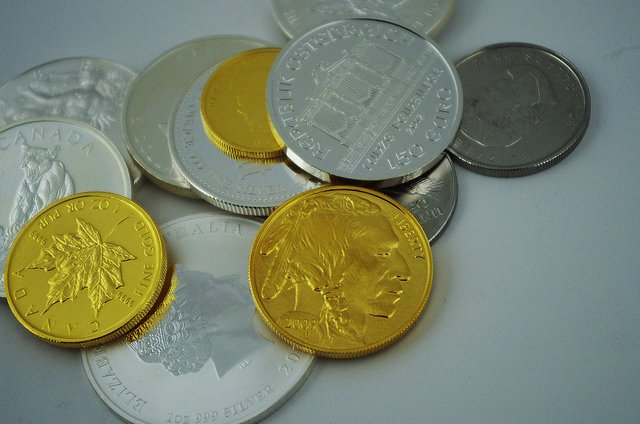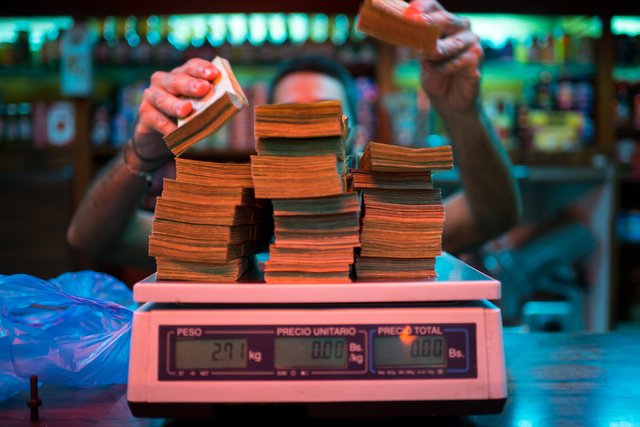Why do we suddenly need to protect the purchasing power of the currency in our pocket/bank account?

Inflation has been around ever since I can remember. The figure reported by the central banks can’t be the true rate of inflation as they are always changing the metrics used to calculate it. One of the reasons may be to hide the true rate of inflation so as not to cause panic or a loss of confidence in the currencies of the world. Inflation always has and always will erode the purchasing power of our currency slowly, but things have changed dramatically since the financial crisis of 2008.
How the world has changed since 2008.
Today’s continuing financial crises began with:
1. Massive QE (quantitative easing aka dilution of the cash in our pockets).
- The powers that be, decided this was necessary to bail-out the banks for reckless and many would say illegal activities, keeping them solvent to continue with their shenanigans.
- The Venezuelan Bolivar is a good example of where QE (money printing) can lead. Hyperinflation is evident everywhere. Shopkeepers now weigh the money used to purchase items, with many believing the items purchased are worth more than the money used. This must be chaos for businesses.

Photographer: Manaure Quintero/Bloomberg.
2. Bank bail-ins (using depositors’ – yours’ and my funds which aren’t covered by a national protection scheme).
- Cyprus is a recent example. Laiki Bank imposed a one-time bank levy on all deposits over 100,000 euros (i.e. everything over 100,000 euros was taken by the bank).
- An estimated 48% of deposits over 100,000 euros were also taken by the Bank of Cyprus from customers at the same time. Legal theft of people’s hard earned currency to pay for banks reckless behavior prior to 2008.
3. A low interest rate environment.
- This has caused sovereign, corporate and personal debt to increase at an alarming rate as it is “cheap” to borrow money.
- These low interest rates also punish savers (those that consume less than they produce be they sovereign, corporate or personal) as there is no real incentive to save.
- Spend, spend, spend is the message being conveyed.
- An example is Monte dei Paschi, Italy’s third largest bank. It was ordered by the ECB in April 2016 to reduce its bad loans (loans unlikely to be repaid). If these banks fail due to non-repayment of these loans, the depositors will be called upon for a bank bail in.
4. A negative interest rate environment.
- This is causing major problems within the pension fund industry. They need to make a yield (return) on their investments (usually “safe” sovereign bonds etc) to meet their liabilities (pension benefit payouts and operating costs). This isn’t happening. I’ll leave it to your imagination what would happen if your anticipated pension benefits were cut by ½ or 2/3 as you enter retirement or are already in retirement.
- Have a look at the cities of Detroit, San Jose and other’s that have partially reneged on long-established contracts with government workers and retirees shrinking benefit cheques that were supposed to only increase over time.
5. The war on cash.
- This has been going on in some countries for a few years already with large cash withdrawals resulting in an interrogation by bank employees as though everyone doing such transactions are criminals. Reporting of these transactions to the authorities is now generally required. Some EU banks don’t allow cash withdrawals of more than 5,000 euros.
- Now there is talk of abolishing of large denominated bills to reduce crime – can you believe it. This is accelerating around the world, notably in India and now some Australian bank branches are refusing to dispense cash.
- A very important lesson from the Indian war on cash fiasco: Any currency only has value and is legal tender if the government says so. The hard truth is, it’s not our money.
- The war on cash could be intensifying for more sinister purposes. Forcing everyone into the banking system and an electronic form of their currency, where every transaction can be tracked, enables greater control. If the banking system needs to be shut down due to a major collapse (of which there are more than a few very large institutions teetering on the brink) it’s easy to do. It is also very difficult to use the cash in someone’s wallet to bail in a bank, but if it’s in a bank account, it’s like taking candy from a child.
- I won’t start on the outright freezing/confiscation due to suspected illegal activities – proven or otherwise. Suffice to say, it’s easier to do from within the banking system.
6. Currency devaluation.
- The currency market used to be reasonably stable. Now it seems that most countries, in their quest to stimulate their economies devalue their currency to make their exports cheap to buyers in other countries.
- China (the factory of the world) is a good example of this. When their customers (foreign countries) start buying less goods, they devalue the currency to make the goods cheaper so that the customers will buy more of them, but their customers are devaluing their own currencies to make their exports cheaper and a vicious cycle emerges.
- The currency in our hands is becoming like fine sea sand slowly falling through our fingers, and we can’t stop it.
We can do nothing to stop any of the above, however when we take control of our finances by converting our savings into real money (gold and silver), it will protect us from the above.
Our short YouTube videos have demonstrated that protection in action over the last 25 years.
When we need to spend some of those savings, gold and silver are easily converted back into any currency of our choice, or sometimes even accepted directly by merchants.
It can be seen throughout recent history that greater freedom = greater wealth. Post WW2 Germany abandoned most government regulation and it flourished to become a powerful economic force. The US was built on principles of freedom which resulted in it becoming the largest economy in the world.
By contrast greater government control = greater poverty. Post WW2 Great Britain increased government regulation which resulted in a stagnant and declining economy with 3 day work weeks, longer wartime rations etc. Communist Russia, North Korea opted for complete government control of everything, look at them now. Unfortunately, this looks like the option many countries are choosing.
History is a great teacher as long as we learn the lessons from the events.
Disclaimer.
The information contained in this post is for educational purposes only and is not to be construed as financial advise.